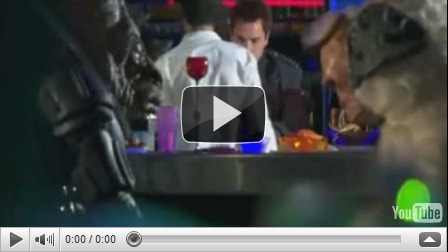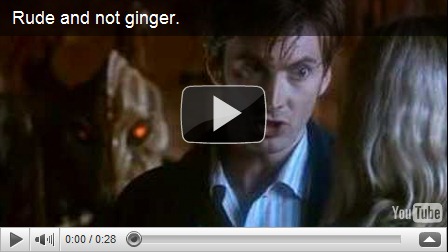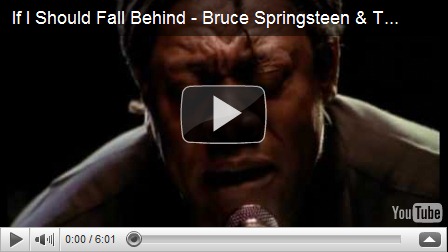The chorus was magnificent. This might have been the finest choral work I’ve ever heard in an opera production. Every word was intelligible and every measure was pitch perfect and the intensity was palpable.
Conductor Michael Christie was a joy to watch in the pit (as he was during Ghosts of Versailles) and he had the orchestra and the chorus in perfect balance. There were times during the very difficult music that every eye in the chorus was trained on him and he brought them through safely.
If only I had liked the music they were singing.
I’m just not a fan of John Adams’ music. So it is high praise indeed from me when I say that I, at points in the performance, thought that I’d like to hear the choral pieces again sometime outside the confines of the opera.
The opera opens with the chorus singing the “Chorus of Exiled Palestinians” and then moves immediately into the “Chorus of Exiled Jews”. The chorus never leaves the stage. I would guess it was close to a half hour of choral singing. And I tip my hat to costume designer James Schuette because with the adjustment of a shawl, a change of handbag, the losing of a hat, the chorus changed identity so completely between the two pieces that they might have been different people.
After these two long choral works the action of the opera begins, if you can call it action. This is, of course, the story of the hijacking of the cruise ship Achille Lauro by a group of Palestinian terrorists and the killing of wheel chair bound, American Jewish tourist Leon Klinghoffer. The two long choral pieces at the beginning set the stage for the political situation.
OTSL’s production of this opera is the first staged United States production since it was staged in 1991. This is, apparently, a controversial opera. OTSL spent a great deal of time and money on community outreach. OTSL General Director Timothy O’Leary described it as “educational events designed to help the production inspire the kind of informed, thoughtful dialogue among diverse groups that the arts have a special power to help create.” I didn’t go to any of them but I know people who did go and found them very informative.
My biggest problem with the opera wasn’t the subject matter. It was the libretto. During most of Act I we are told what happened to characters but are seldom shown what happened. I’ve noticed this a lot with modern opera librettos. Characters stand on stage and sing at the audience, telling them a story. Let’s face it, most operas involve singers standing on stages and singing at audiences. But usually they are singing about their interior lives. Usually love. Often rage. Sometimes despair. But modern operas seem to eschew the steamy emotions and prefer to simply tell us about the character’s actions. So we hear … And then I went to my stateroom and there I washed my face and then I went to find some lunch. It’s like Facebook status updates set to opera music.
I find it really boring. And when it is combined with John Adams minimalist style it is usually a recipe for me to go to sleep and most likely leave at intermission. I barely made it to intermission when OTSL did Nixon in China. So the fact that I stuck it out to the end of Klinghoffer tells you just how much I enjoyed the chorus.
Of course one reason that this particular group of chorus members may have sung this particular opera so well is that the blocking for this particular opera was also minimalist. Mostly non-existent when it came to the chorus. They often stood in rows on stage, facing the conductor, and sang. They didn’t have to sing and dance around and interact with other each other and the main characters. They just had to sing. And they even, at one point, sang touching each other’s arms which must have been a huge help in timing their breathing so that the long, utterly beautiful, sustained notes just floated around the theater.
It would have been nice to have some choreography or, at least, a little more movement. But at least we had the glorious sound of their voices.
Kudos also to Christopher Mageira, who played the Captain and who was outstanding. The others in the cast were also quite fine.
In the end, I would say this was a brilliant production of an opera that I never intend to see again. But I’m glad that I saw it once.
Here’s a link to OTSL’s multimedia preview of this opera (although I can’t get it to play correctly on any of my computers).





